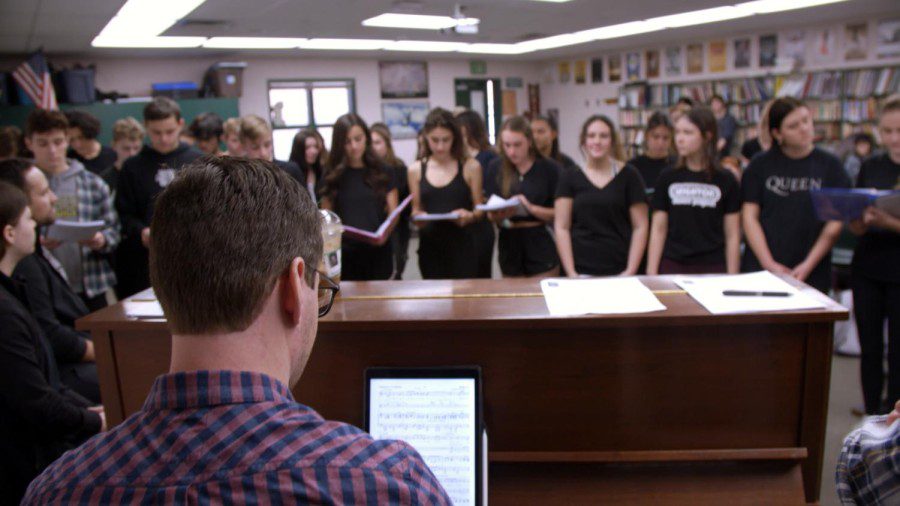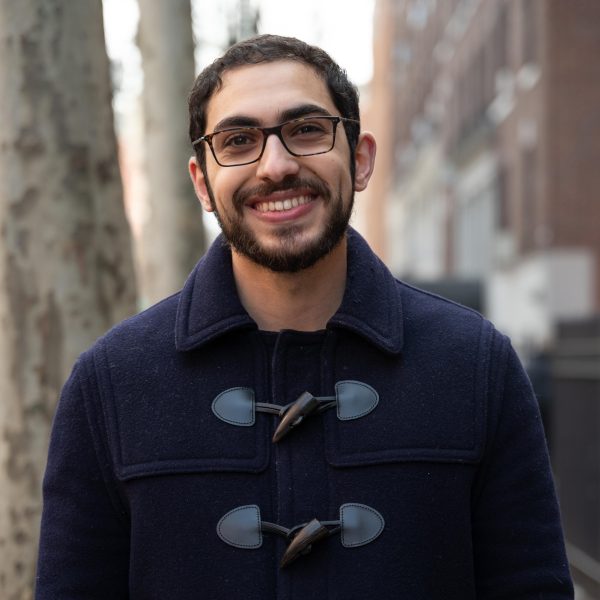Q&A: Anvita Gattani on college apps and filming for new HBO documentary
NYU Tisch student Anvita Gattani spoke with WSN about her role in “My So-Called High School Rank,” which was shown at DOC NYC on Saturday, Nov. 12. The film will premiere on HBO and HBO MAX on Nov. 29.
“My So-Called High School Rank” is a new HBO documentary based on a play about the pressures of high school. (Courtesy of HBO Documentary Films / WarnerMedia)
November 16, 2022
“My So-Called High School Rank” is the new HBO documentary directed by Ricki Stern and Annie Sunberg, both of whom are known for their film and television production company, Break Thru Films. The film begins as a record of Granite Bay High School’s production of a newly written musical titled “Ranked” — a show inspired by the commonly felt anxiety and pressure concerning class rank and academic competition — but eventually transforms into a chronicle of high school life and its drastic changes over the last few years.
Anvita Gattani, a Tisch senior, was a student at Granite Bay High School during the first production of “Ranked,” and she is also featured in the film. Gattani talked with WSN about the documentary and its significance to student self-determination and parental responsibilities — both in relation to the film and high school life in general.
This interview has been edited for length and clarity.
WSN: What is your relationship with “My So-Called High School Rank?”
Gattani: “My So-Called High School Rank” starts with a musical called “Ranked” that came out right around the time of the college admissions scandal, and was performed by Granite Bay School and went viral. I was in the original cast.
The musical talked about anxiety, mental health, inaccessibility and the pressure we put on students to get into that perfect school, plan a future for themselves and make sure to do better for themselves. HBO got wind of the musical and started filming me when I was in high school because I was a part of the original cast.
WSN: I understand that this was your first time watching the film. What did you think?
Gattani: First of all, just seeing yourself from three or four years ago is a very surreal experience. We have this interesting relationship with education and higher education where sometimes, when you’re going through the SAT, ACT and the application process, it feels life-ending to you. But then as soon as you do it, you’re like “Ah, I did it, so anyone can do it.” Being put back into that and seeing myself, as well as other 16, 17 and 18-year-olds really talk about how that process was for them — it brought me back.
Even talking about how the pandemic and everything that drastically changed the world and education, the pressures and mental health impacted people — hearing all of that was very surreal because we’re so close to it that a lot of us didn’t fully process it until we reflected on what it was like. It was super surreal and I really love the story that Ricki and Annie chose to highlight. It’s something that I’ve been talking about and been a part of for three or four years, so the fact that it happened is also insane.
WSN: What about “Ranked” resonated with you most?
Gattani: It is about the youth and for the youth. There are literally no parental roles or even roles of a teacher, an adviser or a guidance counselor in the entire show. It is a show completely comprised of high school students and really gave a voice and listened to the things that high school students had to say. Once you hit a certain age, you think, “Oh, they’re so naive. Oh, they don’t really understand the realities of the world. Oh, they’re gonna grow up soon.”
The way that Kyle Holmes and David Taylor Gomes, the writers of “Ranked,” really took student testimonies and their experiences, and said, “No, people do deserve to listen to you for two hours, and you will be heard for two hours.” That is super unique, and I don’t think that is done often. Not to mention the diversity of experiences of the cast. There’s a large diversity of class, accessibility, pressure, of mental health while they’re all a part of the system. I love that “Ranked” dives into that fearlessly.
WSN: Of the different high schools featured in this documentary, yours was the first. What was it like to have filmmakers at your school, and did you have any clear idea of what the project would be at the time?
Gattani: It was crazy. There was so much footage of me that wasn’t in the film. I not only had filmmakers in my school, but I also had them in my bedroom on several different occasions. I had them filming me playing the piano at home, me and my grandma, in my car on my way to the performances — that is super surreal. It’s a strange feeling, but again, something I love about this documentary and something I love about “Ranked” itself is that it is so nice to have someone ask you a question and care about the answer, even if it’s for the purpose of this film. None of us really knew if it was going anywhere, and then the pandemic happened. I don’t think we realized what it was going to be when it was happening.
WSN: Do you think the meaning of “Ranked” in any way changed as the years went by?
Gattani: I think when you write something and put it out into the world and allow anyone to license it and enjoy it, that means that it’s open to interpretation. The fact of having 75 different schools do “Ranked” has changed its meaning, but also maybe it just highlighted its meaning. “Ranked,” when done in communities that are facing inaccessibility to education and resources, really highlights the struggles the characters are going through. I don’t know if the meaning had changed, but it was definitely highlighted.
WSN: How did “Ranked” and high school prepare you for your time at NYU? Has the documentary changed your perspective at all?
Gattani: The documentary added a little more color to my perspective. I had a lot of the same perspective as the documentary, so it just deepened the perspective that I already had. That’s also because, within the conception of “Ranked,” we have been talking about education, mental health, pressure, inaccessibility, community, educators and the responsibility of parents — we’ve been talking about it for a really long time. It was beautiful to see all those conversations highlighted on the big screen.
Contact Yezen Saadah at [email protected].

























































































































































